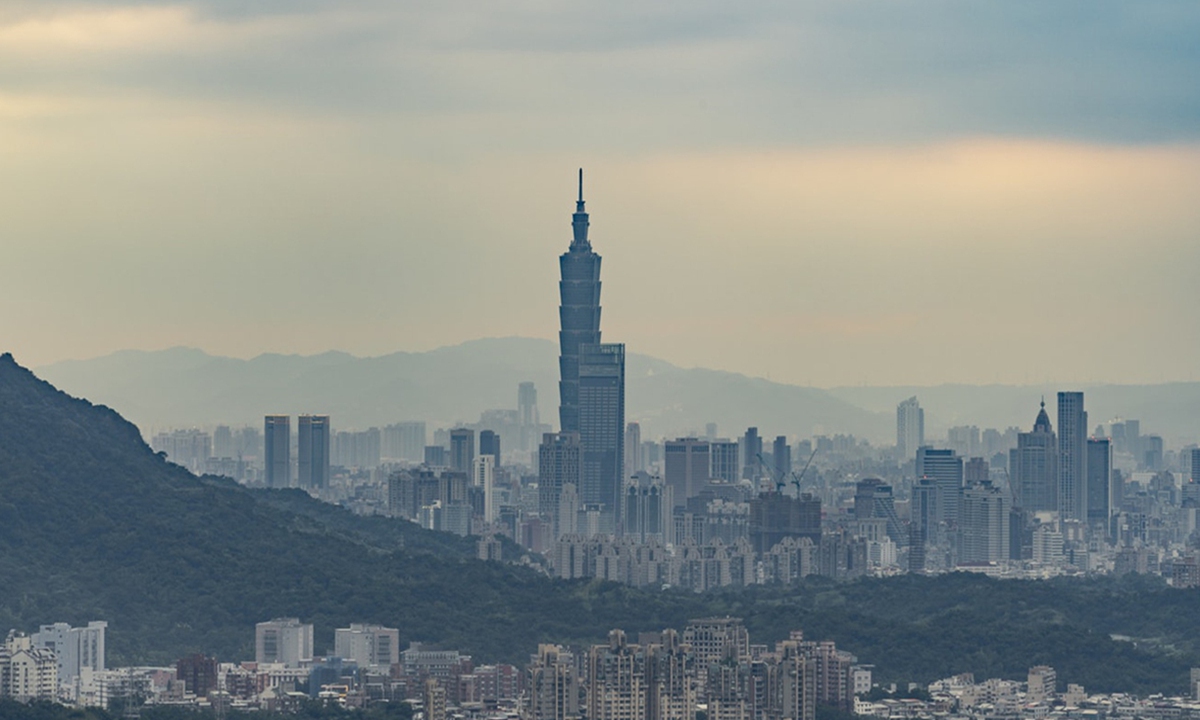Chinese mainland resumes group tours from Taiwan in latest effort to boost cross-Straits exchanges

A view of the Taipei city, Taiwan island Photo: Unsplash
Chinese mainland authorities on Friday announced the resumption of group tours from the island of Taiwan, as the mainland continues to take concrete steps to boost cross-Straits commercial and people-to-people exchanges, while the secessionist Democratic Progressive Party (DPP) authorities on the island continue to undermine such exchanges.
Starting today, travel agencies will resume the business of group tours for Taiwan residents coming to the mainland, Ma Xiaoguang, a spokesperson for the Taiwan Affairs Office of the State Council, said on Friday, in response to a media inquiry. "We warmly welcome Taiwan compatriots to visit the mainland."
Also on Friday, the Ministry of Culture and Tourism issued a notice, saying that travel agencies and online travel companies will resume inbound group tours and "air ticket + hotel" business for Taiwan residents.
The ministry asked all localities to steadily promote the resumption of travel agencies' tourism business for Taiwan residents' inbound group tours, while upholding the conviction that people on both sides of the Taiwan Straits are of the same family. They should guide local travel agencies to better design routes and related products, implement group travel management systems and norms, and effectively maintain the order of the tourism market, the ministry said.
"The resumption of group tours for Taiwan residents coming to the mainland will not only make it more convenient for travelers, but also have a very positive impact in terms of increasing the passenger capacity of cross-Straits flights and further revitalizing the inbound tourism business," Zhou Weihong, a deputy general manager of Shanghai Spring Tour, told the Global Times on Friday.
Zhou noted that the enthusiasm of Taiwan compatriots to visit the Chinese mainland has remained high, as the economic, social and ecological development of the mainland over the years has been a major draw for tourists from the island.
Spring Airlines currently operates a Shanghai-Taipei flight every Friday. The company will make full use of the advantages of its airline resources and design tourism products suitable for Taiwan compatriots who want to visit the mainland, Zhou said, adding that the tour guide management department has also started training programs to ensure that high-quality service is available for Taiwan tourists.
"We are very looking forward to the resumption and believe that cross-Straits cultural and travel exchanges will become more intensive in the future," Xu Xiaolei, a marketing manager from China's CYTS Tours Holding Co, told the Global Times on Friday.
The scale of our company's cross-Straits travel business was significant before the COVID-19 pandemic, so the company currently has a relatively robust team and is actively arranging marketing, hospitality and other services, Xu added.
The mainland has been taking concrete steps to strengthen cross-Straits commercial and people-to-people exchanges since it declared decisive victory against the epidemic earlier this year, in stark contrast to the DPP authorities' restrictive actions.
On April 26, Zhu Fenglian, another spokesperson for the Taiwan Affairs Office of the State Council, said that over the past three years, the DPP authorities banned mainland residents from visiting the island, unilaterally closed the "mini three links," canceled cross-Straits direct flights, and banned travel agencies on the island from conducting travel business to the mainland, effectively blocking the development path of cross-Straits tourism.
The "mini three links" refer to direct trade, postal and transport services that were launched on January 1, 2001.
"Since the beginning of the year, we have taken a series of measures to facilitate cross-Straits travel, which were affirmed and welcomed by compatriots on both sides of the Straits," Zhu said.
The DPP authorities were forced to relax some restrictions on the "mini three links" and the resumption of cross-Straits direct flights, but it is far from enough, Zhu said, adding that compatriots on both sides of the Straits hope that cross-Straits people-to-people exchanges as well as exchanges in various fields will be normalized as soon as possible.
"The DPP authorities should heed the will of the public, completely remove artificial barriers, and take practical measures to restore cross-Straits communication and normal exchanges," Zhu urged.

